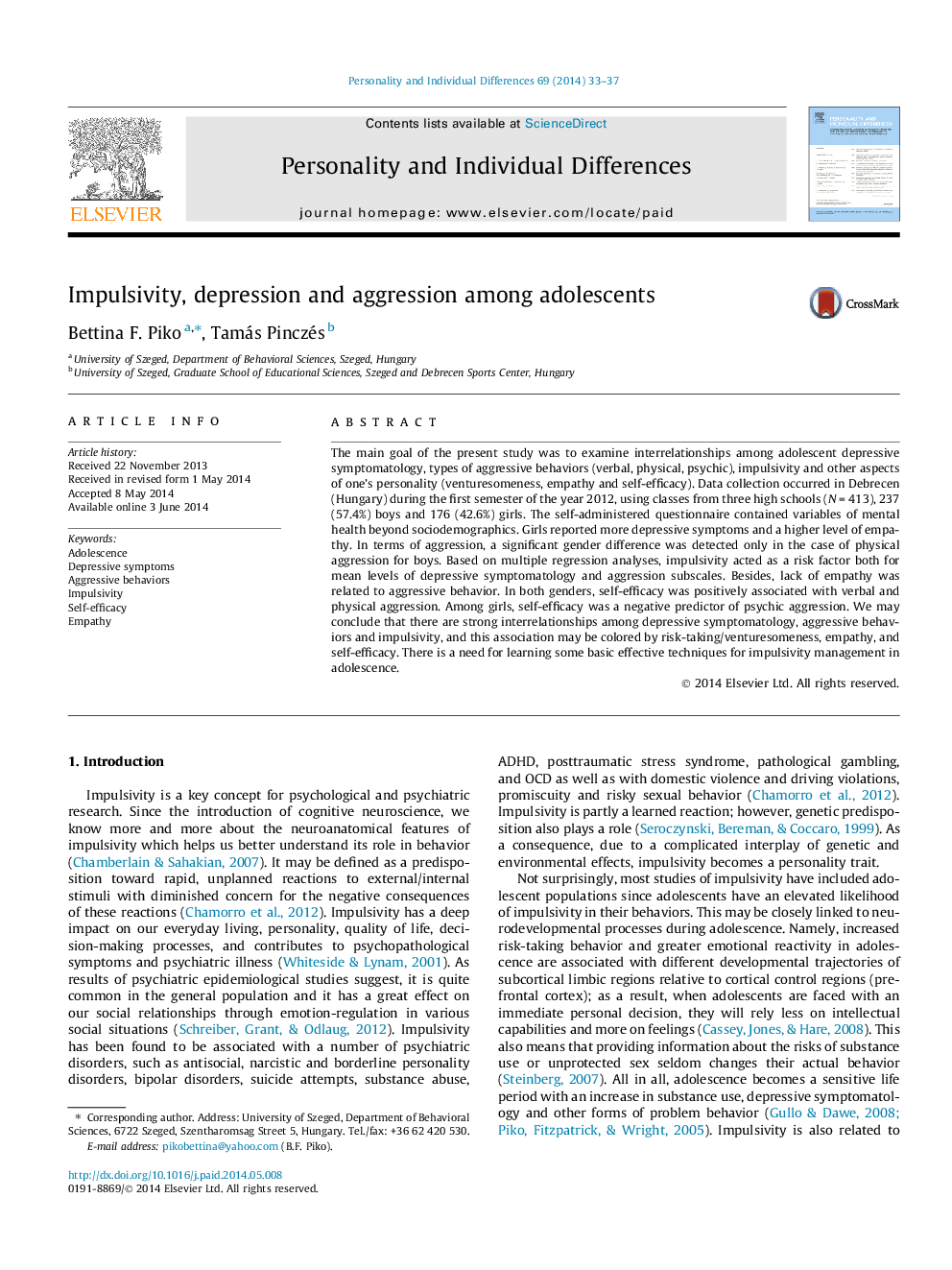| Article ID | Journal | Published Year | Pages | File Type |
|---|---|---|---|---|
| 890400 | Personality and Individual Differences | 2014 | 5 Pages |
•There are intercorrelations among depressive symptoms, aggression and impulsivity.•Venturesomeness plays less of a role in depression and aggression than impulsivity.•Empathy is a negative correlate of adolescent aggressive behavior.•Self-efficacy is a negative correlate of depression but a positive of aggression.
The main goal of the present study was to examine interrelationships among adolescent depressive symptomatology, types of aggressive behaviors (verbal, physical, psychic), impulsivity and other aspects of one’s personality (venturesomeness, empathy and self-efficacy). Data collection occurred in Debrecen (Hungary) during the first semester of the year 2012, using classes from three high schools (N = 413), 237 (57.4%) boys and 176 (42.6%) girls. The self-administered questionnaire contained variables of mental health beyond sociodemographics. Girls reported more depressive symptoms and a higher level of empathy. In terms of aggression, a significant gender difference was detected only in the case of physical aggression for boys. Based on multiple regression analyses, impulsivity acted as a risk factor both for mean levels of depressive symptomatology and aggression subscales. Besides, lack of empathy was related to aggressive behavior. In both genders, self-efficacy was positively associated with verbal and physical aggression. Among girls, self-efficacy was a negative predictor of psychic aggression. We may conclude that there are strong interrelationships among depressive symptomatology, aggressive behaviors and impulsivity, and this association may be colored by risk-taking/venturesomeness, empathy, and self-efficacy. There is a need for learning some basic effective techniques for impulsivity management in adolescence.
